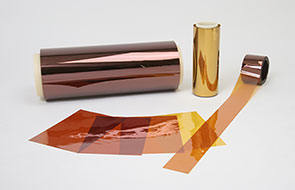Xenomax – Japan Co., Ltd. founded to produce and sell heat-resistant polyimide film XENOMAX®
Toyobo Co., Ltd. established Xenomax – Japan Co., Ltd., a joint venture company with Nagase & Co., Ltd., on April 2 to produce and sell the heat-resistant polyimide film XENOMAX®. Nagase, headed by President and CEO Kenji Asakura, is a Chuo-ku, Tokyo-based trading firm that specializes in chemical products.
1. Xenomax – Japan Co., Ltd.
| Location | : | 10-24 Toyocho, Tsuruga City, Fukui Prefecture (inside Tsuruga Research and Production Center, Toyobo Co., Ltd.) |
|---|---|---|
| President | : | Hidehiro Nakamura |
| Paid-in-capital | : | ¥3.4 billion |
| Number of employees | : | About 40 |
| Established | : | April 2, 2018 |
| Business operations | : | Production and sales of XENOMAX® |
<Outline of new plant to be built>
| Location | : | Same as Xenomax – Japan |
|---|---|---|
| Total floor space | : | About 4,300 square meters |
| Structure | : | Steel frame |
| Number of stories | : | Two (five in a certain part) |
| Start of operation | : | Scheduled for October 2018 |
| Investment | : | About ¥3 billion |

Polyimide film “XENOMAX®”

Rendering of New Plant of “Xenomax®”
2. Information on heat-resistant polyimide film XENOMAX®
XENOMAX® is a heat-resistant polyimide film whose dimensional stability is among the world’s best for this kind of film, with a coefficient of thermal expansion (CTE) of about 3ppm/ºC in environments ranging from room temperature to as high as 500ºC. Utilizing its technologies to synthesize heat-resistant polymers and make films, Toyobo succeeded in producing a polyimide film that has the dimensional stability equivalent to that of glass substrates, an achievement long considered to be impossible. The product can be used as a substrate on which thin-film transistors (TFT) are built in a production process under temperatures ranging from 400ºC to 500ºC. The product has been made at a pilot plant inside the Corporate Research Center (Otsu City, Shiga Prefecture), and used as a TFT substrate for electronic paper displays.
3. Strategies
Xenomax – Japan will build a new plant scheduled to start operations in October 2018. This plant will enable the company to meet growing demand for TFT substrates to be used in electronic paper displays. In addition, the company will capitalize on the main features of XENOMAX® – it is thin, light, virtually unbreakable and bendable – to market the product. It can be used for flexible OLED, various sensors and next-generation displays such as microLED.
A new-grade, 5-micron-thin product has been added to the XENOMAX® lineup, in addition to the conventional 38-micron-thin type. Xenomax – Japan will focus on expanding XENOMAX® sales for flexible OLED and sensors, which require ever-thinner components. The company aims to establish a ¥10 billion business at an early stage.
Glossary
- Coefficient of thermal expansion: The index of dimensional stability with a change in temperature. The lower the value, the higher the stability.
- Dimensional stability: The degree to which a substance (material) maintains its original dimensions when subjected to changing temperatures.
For more information, contact
Public Relations Group, Corporate Communication Department, Toyobo Co., Ltd.
MAILpr_g@toyobo.jp
Cautionary Statement
This website contains forward-looking statements that reflect Toyobo's plans and expectations. These forward-looking statements are not guarantees of future performance and involve known and unknown risks, uncertainties and other factors that may cause Toyobo's actual results, performance, achievements or financial position to be materially different from any future results, performance, achievements or financial position expressed or implied by these forward-looking statements.






